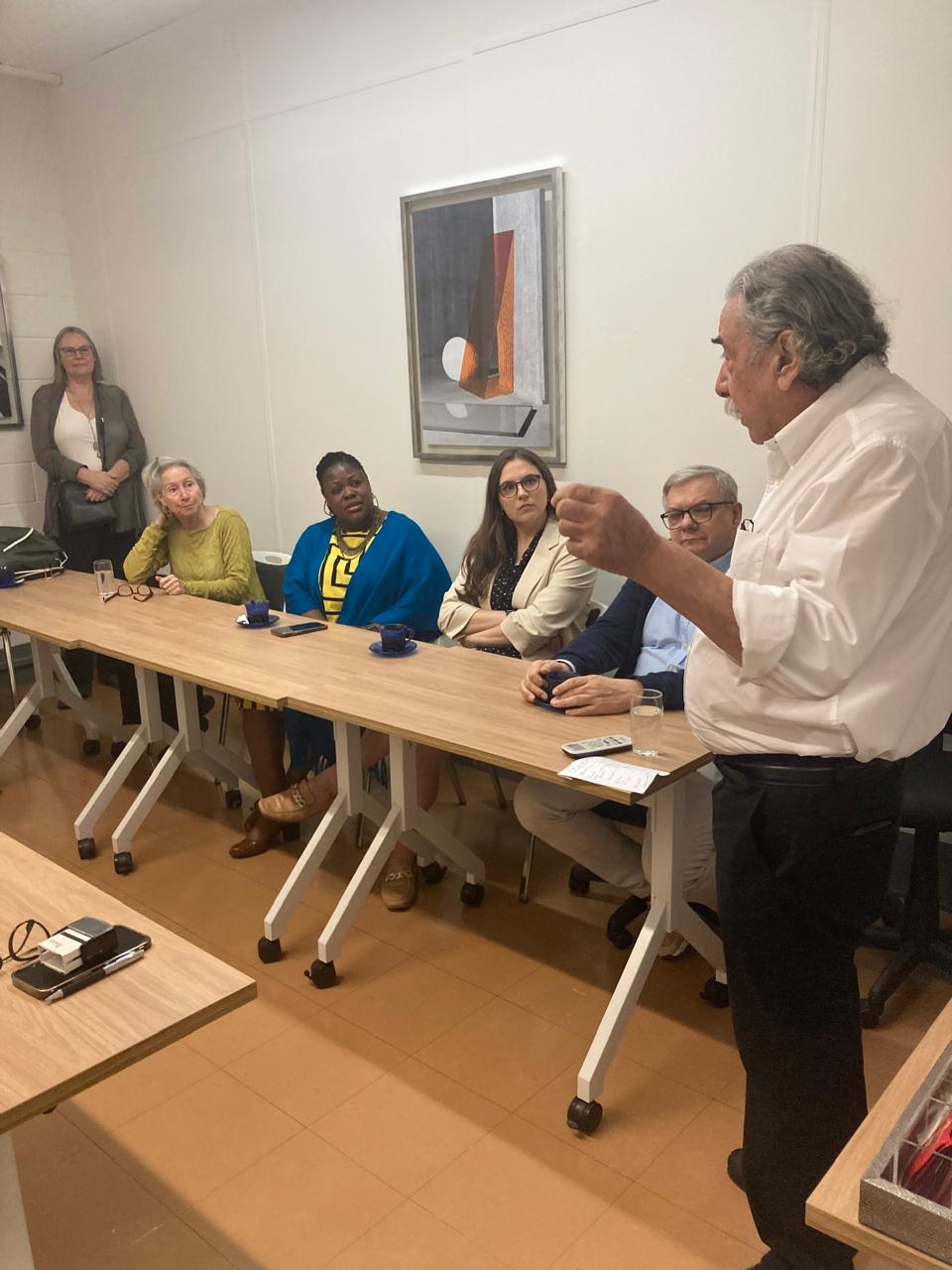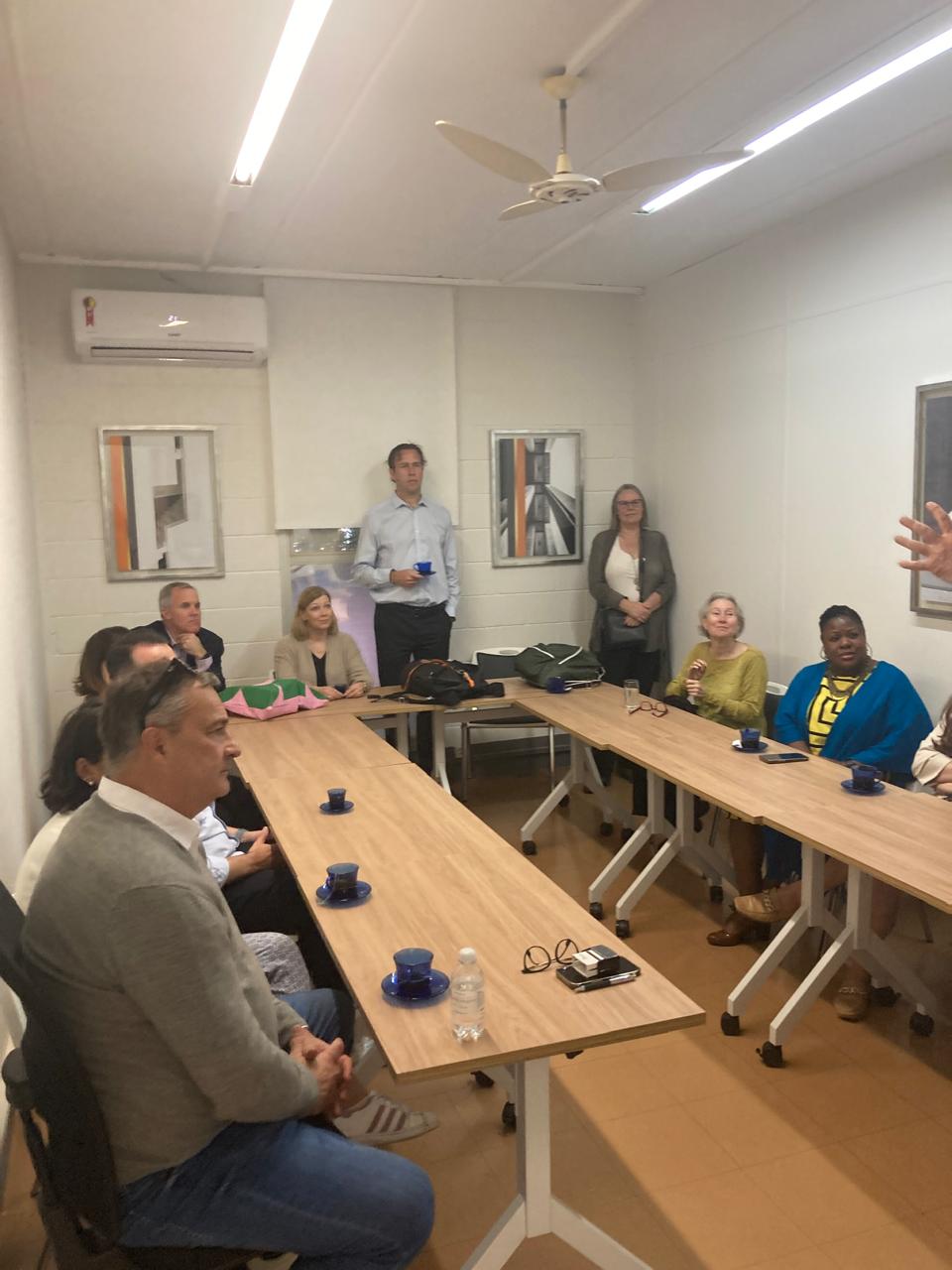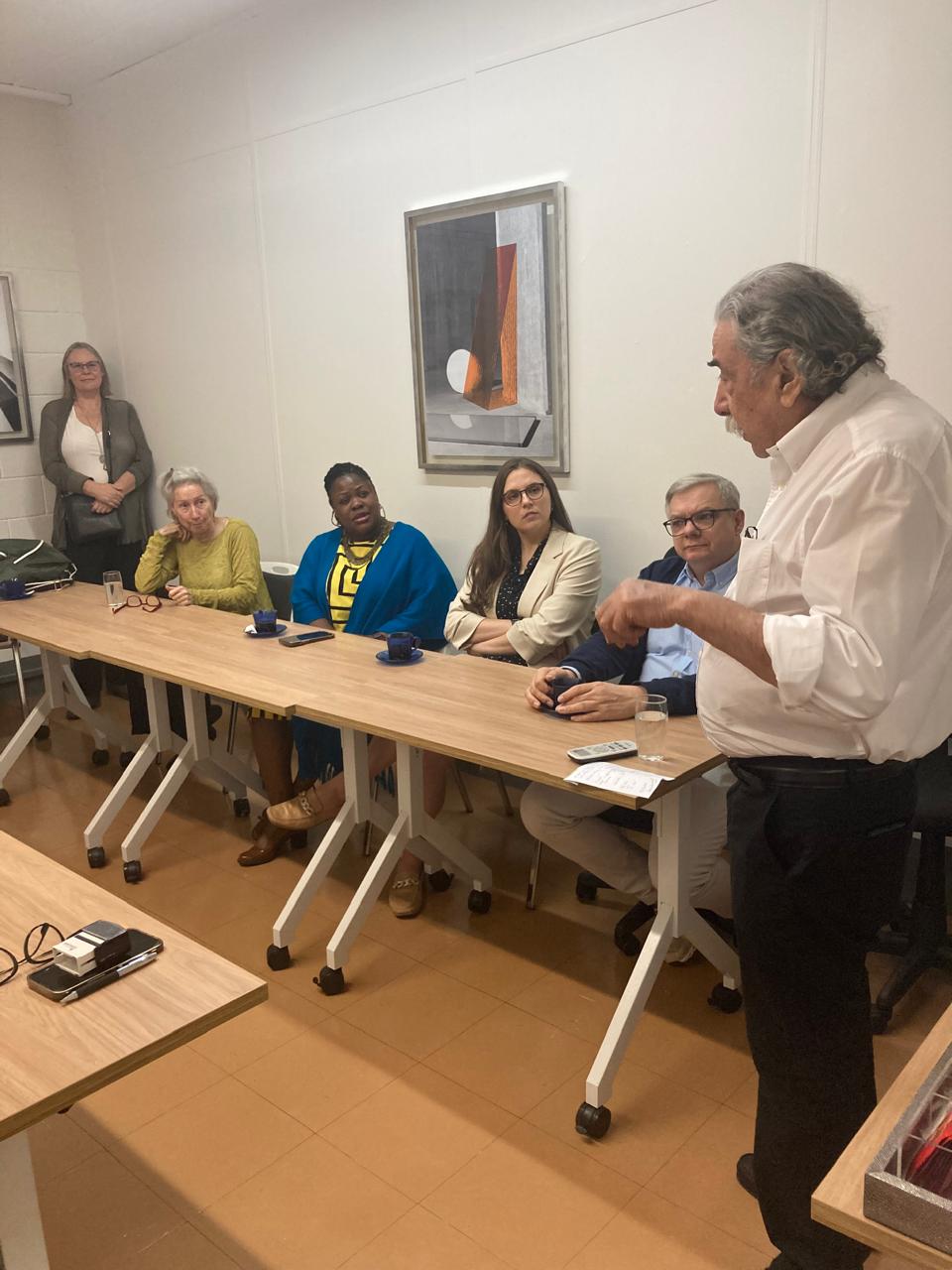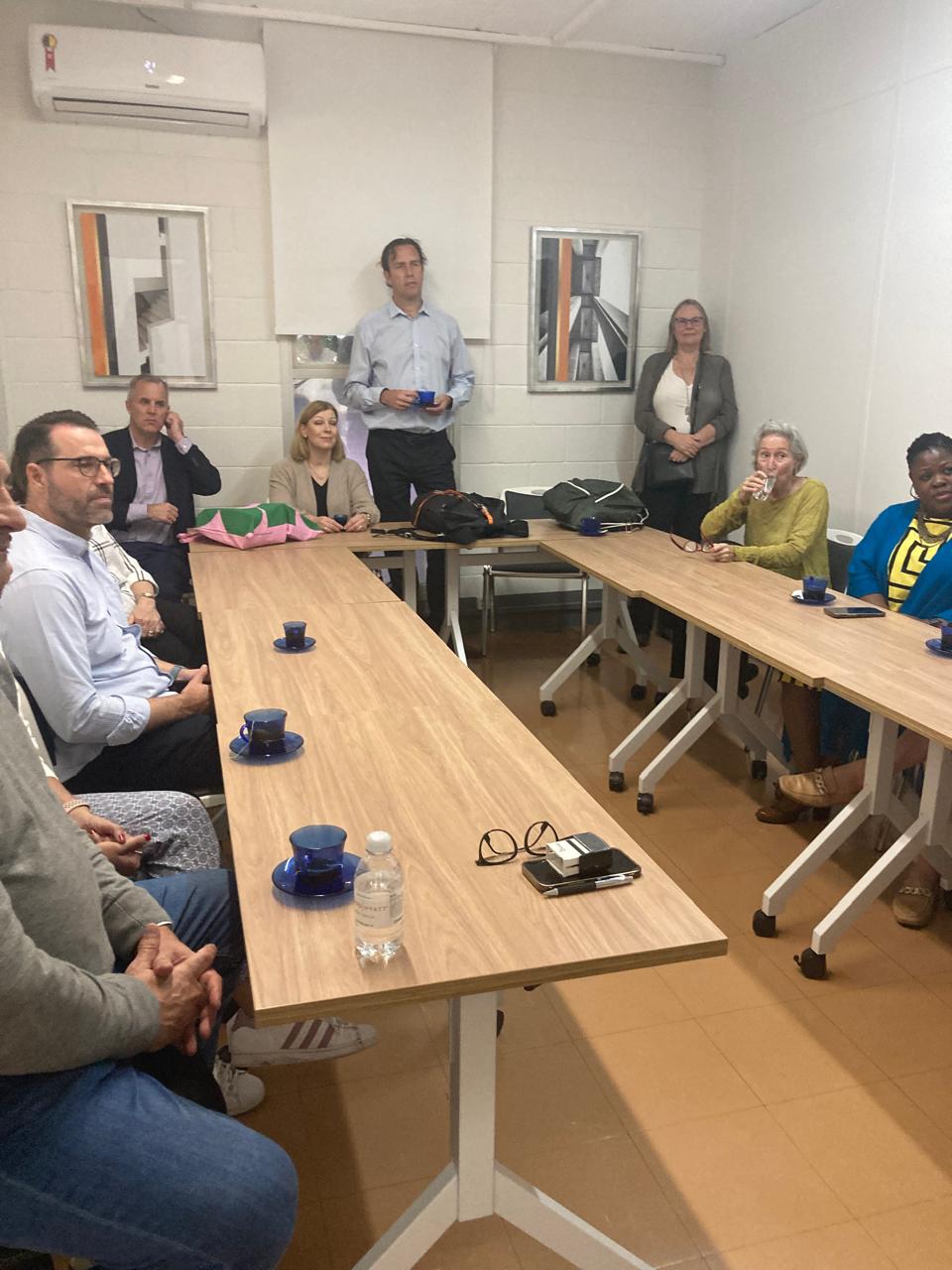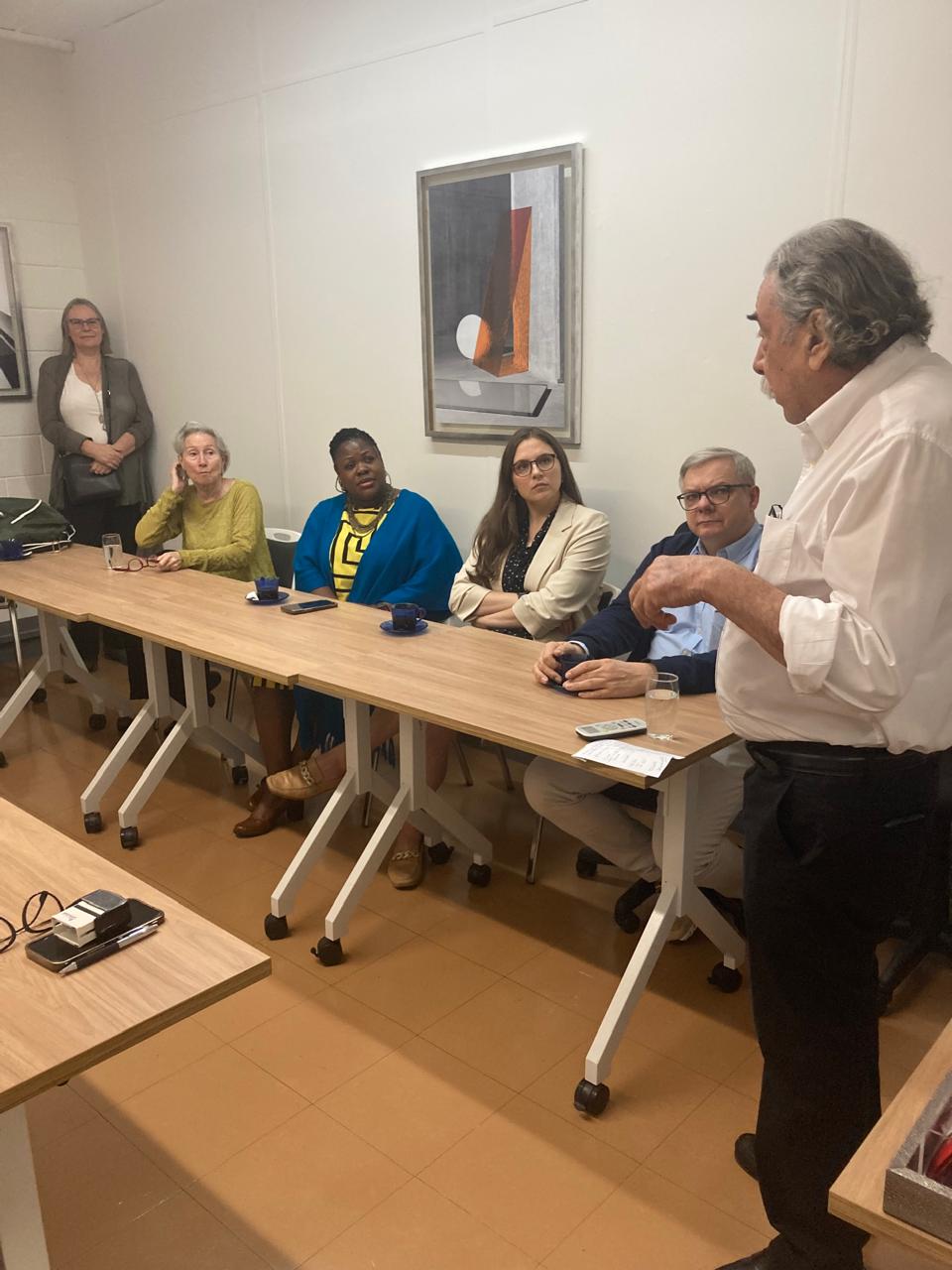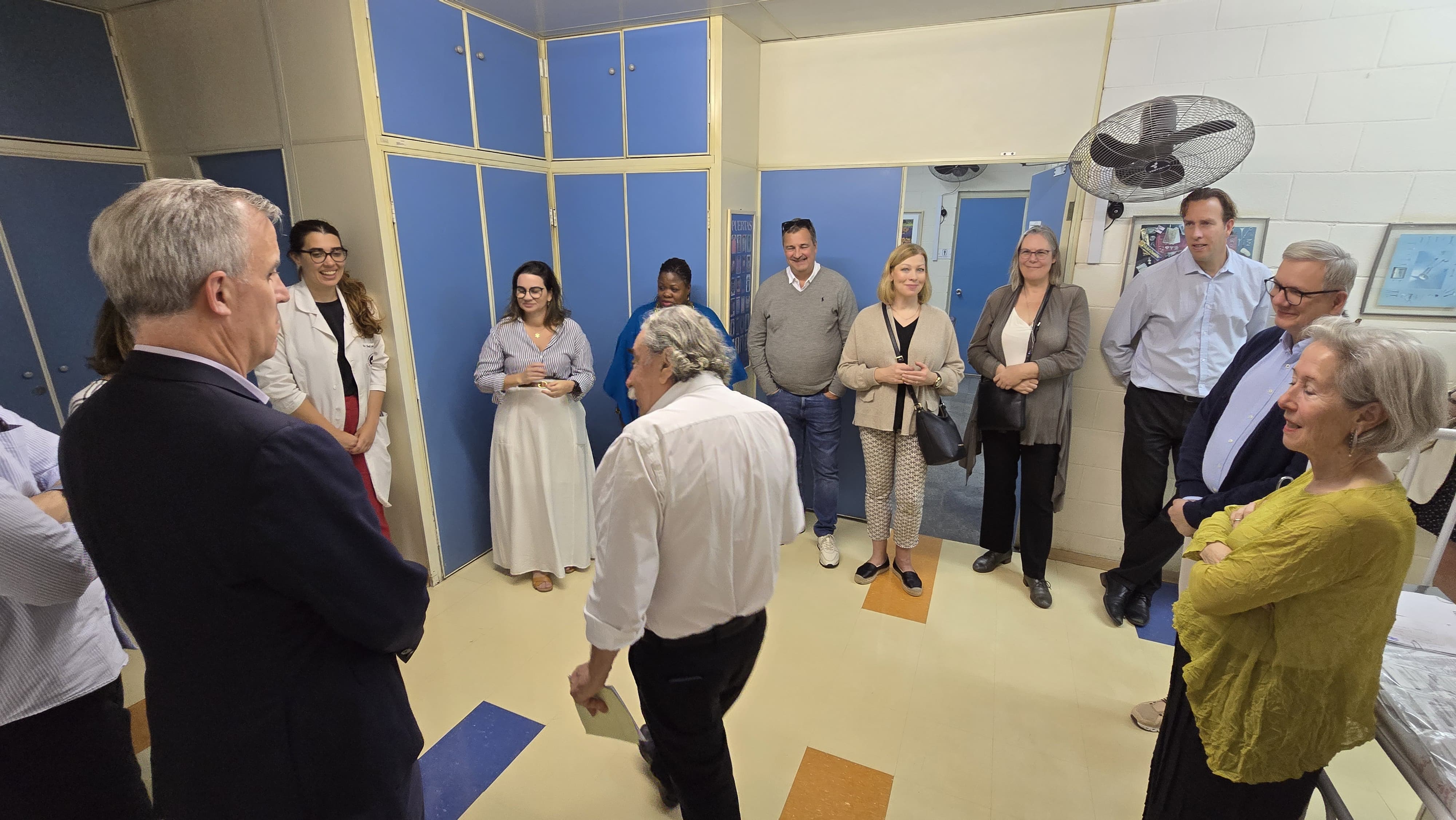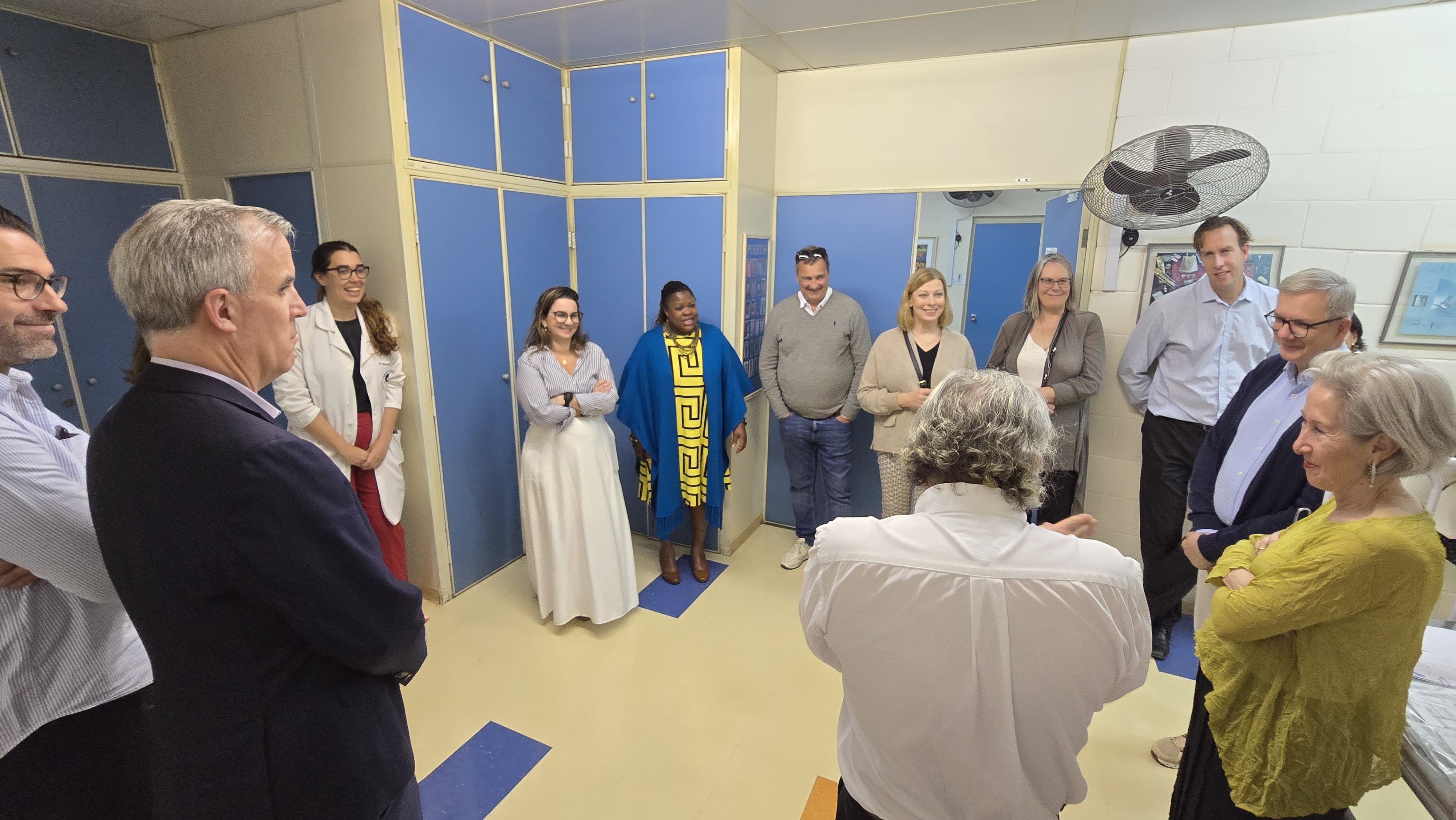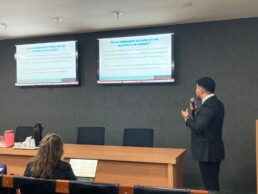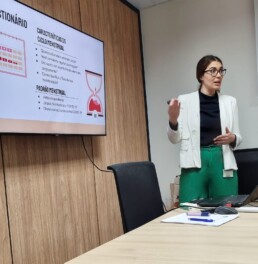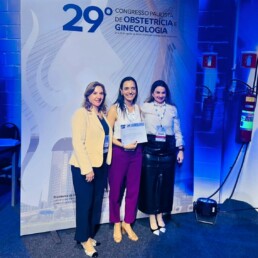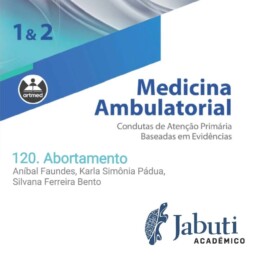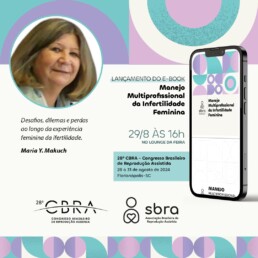CEMICAMP Receives Special Visit from ICA Foundation and Population Council: A Successful Partnership in Reproductive Health
On November 21, 2024, the Campinas Reproductive Health Research Center (CEMICAMP) had the honor of receiving an international delegation from the ICA Foundation and the Population Council, reaffirming the importance of the partnership between these institutions in advancing global reproductive health.
About ICA
 Founded in December 2003, the ICA Foundation is the result of a collaboration between Bayer AG, a global leader in specialized pharmaceuticals, and the Population Council, an international non-profit organization. The Foundation's mission is to provide hormonal intrauterine devices (LNG-IUS) on a non-profit basis, expanding access to contraceptives in low- and middle-income countries. With nearly 250,000 devices donated in 47 countries, the ICA Foundation has been essential in promoting family planning and reproductive health in vulnerable communities.
Founded in December 2003, the ICA Foundation is the result of a collaboration between Bayer AG, a global leader in specialized pharmaceuticals, and the Population Council, an international non-profit organization. The Foundation's mission is to provide hormonal intrauterine devices (LNG-IUS) on a non-profit basis, expanding access to contraceptives in low- and middle-income countries. With nearly 250,000 devices donated in 47 countries, the ICA Foundation has been essential in promoting family planning and reproductive health in vulnerable communities.
CEMICAMP
CEMICAMP is one of the leading reproductive health research centers in Brazil, affiliated with the State University of Campinas (UNICAMP). Recognized for its scientific excellence, CEMICAMP conducts clinical studies, develops health policies, and promotes access to quality services for women throughout Brazil.
Dr. Luis Bahamondes: Leader in Reproductive Health
President of CEMICAMP, Dr. Luis Bahamondes, Emeritus Professor and Full Professor in the Department of Obstetrics and Gynecology at the State University of Campinas (UNICAMP), is internationally recognized for his contribution to research in contraception and reproductive health. His leadership has been essential in implementing and expanding the use of the LNG-IUS in Brazil, benefiting thousands of women and fostering scientific advancements.
"The LNG-IUS is highly valued by women seeking a long-acting, reversible, and highly effective contraceptive. In addition to contraceptive benefits, it provides significant relief for those suffering from heavy or abnormal uterine bleeding — a condition affecting about 35% of women of reproductive age. In many regions of Brazil, donations from the ICA Foundation represent the primary, and often the only, access to this essential intrauterine device, making it an indispensable resource for reproductive health."
ICA Foundation & CEMICAMP
Since 2007, the collaboration between ICA Foundation and CEMICAMP has stood out not only for achieving its initial goal of providing intrauterine devices (IUDs) to public health networks but also for its academic impact. The partnership has resulted in over 60 articles published in scientific journals and the defense of 13 academic theses, consolidating the scientific relevance of the work being done.
In addition, through CEMICAMP, hormonal IUDs (LNG-IUS) provided by ICA Foundation, as well as copper IUDs, are sent to more than 30 centers in 14 Brazilian states, expanding the project's reach and contributing to the health of thousands of women across the country.
Population Council
The visit on November 21, 2024, was attended by high-level representatives from the ICA Foundation and the Population Council, strengthening the ties between the institutions:
- Lorna Begg (EUA)
- James (Jim) Sailer (EUA)
- Frank Strelow (Alemanha)
- Nahla Abdel-Tawab (Egito)
- Juhani Syrjala (Finlândia)
- Milly Nanyombi Kaggwa (Uganda)
- Anne Cecile Pfitzer (EUA)
- Maria M. Vivas Pérez (Colômbia)
- Marcel Van Valen (Holanda)
- Carolyn Louise Westhoff (EUA)
- Kai Risse (Alemanha)
- Karen Joanna Holopainen (Finlândia)
Impact and Future of the Collaboration
 This innovative partnership not only expands access to high-quality contraceptive methods but also fosters scientific research and health professional training. The exchange of experiences during the visit highlighted the transformative impact of the collaboration and reaffirmed the commitment of all parties involved to promoting reproductive health, women's empowerment, and equity in access to care.
This innovative partnership not only expands access to high-quality contraceptive methods but also fosters scientific research and health professional training. The exchange of experiences during the visit highlighted the transformative impact of the collaboration and reaffirmed the commitment of all parties involved to promoting reproductive health, women's empowerment, and equity in access to care.
The joint work between the ICA Foundation and CEMICAMP continues to deliver lasting benefits, strengthening health systems and building a solid foundation for future advancements in reproductive health.
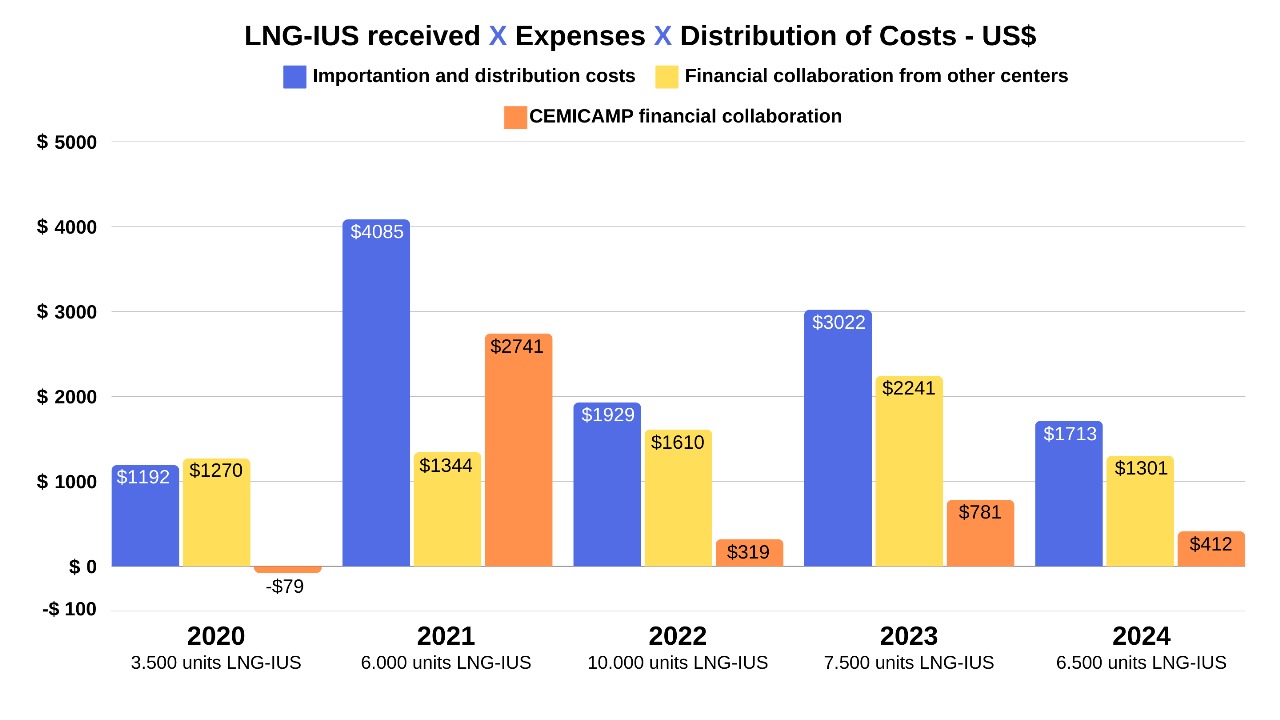
Partnership between CEMICAMP and ICA Foundation: Promoting Reproductive Health Since 2007
 In 2024, the ICA Foundation celebrates 20 years of commitment to reproductive health and equitable access to contraceptive methods worldwide. Since its founding in 2004, the organization has played a crucial role in promoting women's well-being, especially in regions with higher social vulnerability, by donating hormonal intrauterine devices (SIU-LNG) to public health programs and partner organizations. Over the past two decades, the ICA Foundation has positively impacted millions of lives, trained healthcare professionals, and contributed to advancements in scientific research, reaffirming its mission to transform access to family planning into a universal right.
In 2024, the ICA Foundation celebrates 20 years of commitment to reproductive health and equitable access to contraceptive methods worldwide. Since its founding in 2004, the organization has played a crucial role in promoting women's well-being, especially in regions with higher social vulnerability, by donating hormonal intrauterine devices (SIU-LNG) to public health programs and partner organizations. Over the past two decades, the ICA Foundation has positively impacted millions of lives, trained healthcare professionals, and contributed to advancements in scientific research, reaffirming its mission to transform access to family planning into a universal right.
Since 2007, the Campinas Reproductive Health Research Center (CEMICAMP) has maintained a strategic partnership with the ICA Foundation, a global organization dedicated to access to contraceptive methods and the strengthening of public health policies. This collaboration has played a key role in expanding access to long-acting, highly effective contraceptive options, especially for low-income populations in Brazil.
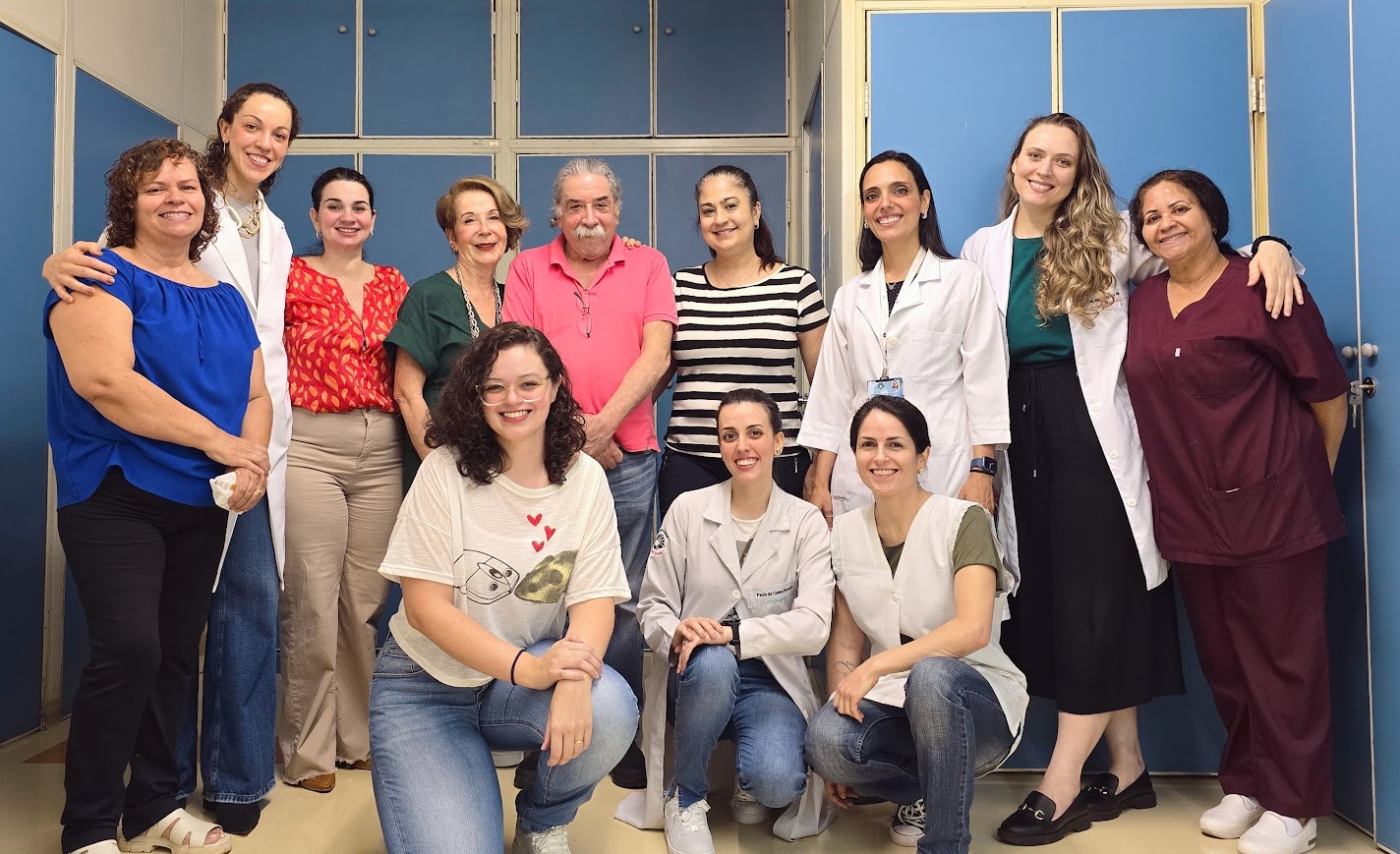 Benefits for Public Health and Research
Benefits for Public Health and Research
- Expansion of access to hormonal IUD:
- Thousands of devices have been provided over the years, allowing women who otherwise wouldn't have access to this method the opportunity for choice and reproductive control.
- Strengthening of scientific research:
- The donation of devices by the ICA Foundation has enabled the conduct of clinical studies at CEMICAMP, generating valuable data on the efficacy, safety, and acceptability of the hormonal IUD in various contexts. These studies have influenced health policies and guided clinical practice in Brazil and internationally.
- Social and educational impact:
- Healthcare professionals received specialized training in the management and insertion of the SIU-LNG, promoting reproductive health education and improving care in public and private institutions.
- Contribution to the sustainability of the healthcare system:
- The expanded use of the hormonal IUD contributes to the reduction of healthcare system costs by preventing complications related to unintended pregnancies and reducing the need for more complex treatments.
 This partnership is an example of how collaborations between non-governmental organizations, philanthropic foundations, and research centers can generate a significant and sustainable impact on global health. Over more than 15 years, the joint work between CEMICAMP and the ICA Foundation has contributed to women's empowerment and improved the quality of life for women throughout Brazil.
This partnership is an example of how collaborations between non-governmental organizations, philanthropic foundations, and research centers can generate a significant and sustainable impact on global health. Over more than 15 years, the joint work between CEMICAMP and the ICA Foundation has contributed to women's empowerment and improved the quality of life for women throughout Brazil.
Luis Marcelo Noles Rodríguez, HUB/WHO master's student, defends his dissertation.
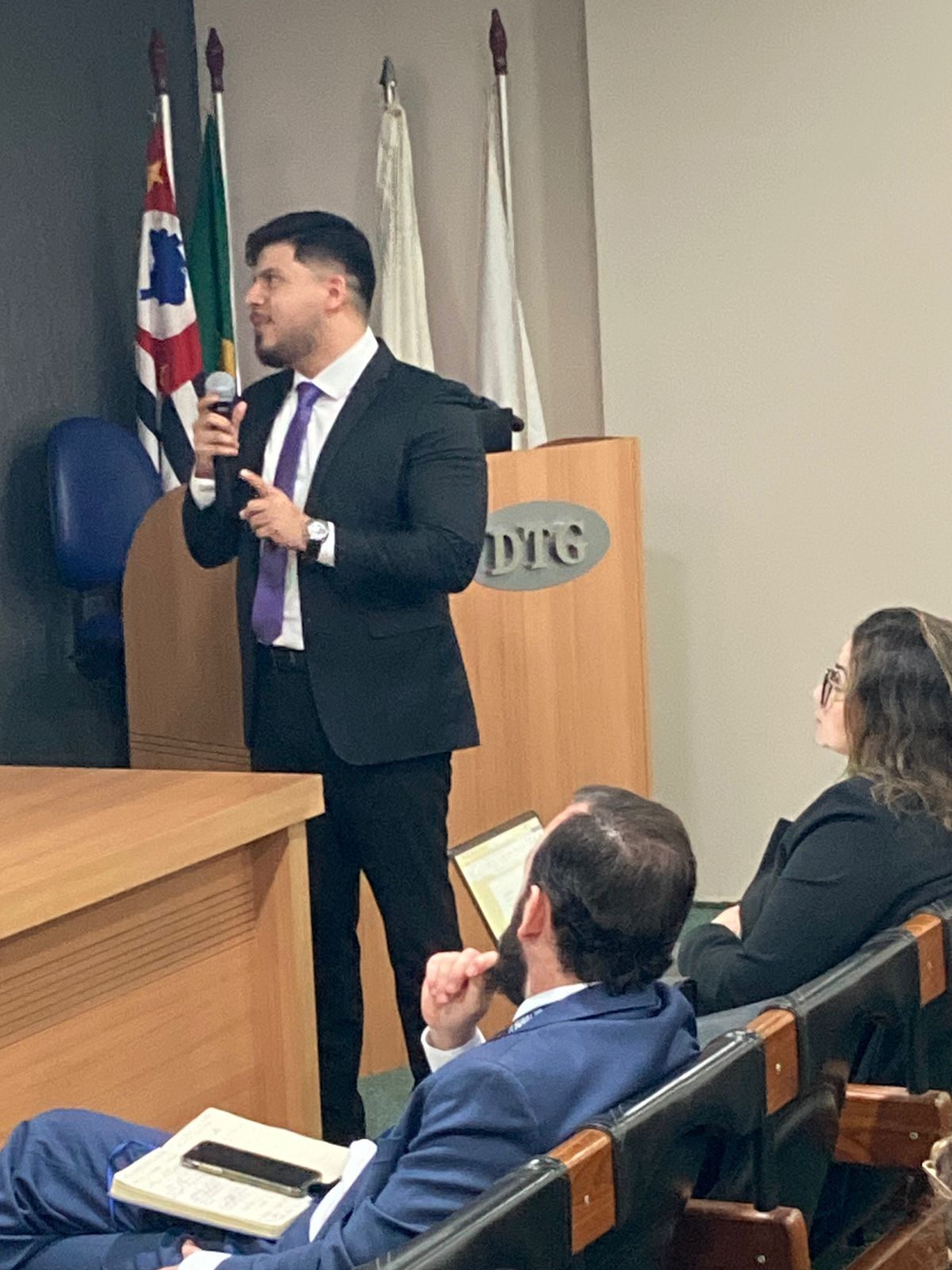 Today, 29/08/2024, master's student Luis Marcelo Noles Rodríguez defended his dissertation titled "Satisfaction and Care Experience Among Women with Complications Related to Early Pregnancy Loss in Brazil," under the coordination of Prof. Dr. Luiz Francisco Cintra Baccaro.
Today, 29/08/2024, master's student Luis Marcelo Noles Rodríguez defended his dissertation titled "Satisfaction and Care Experience Among Women with Complications Related to Early Pregnancy Loss in Brazil," under the coordination of Prof. Dr. Luiz Francisco Cintra Baccaro.
The student has a scholarship from HUB/WHO/CEMICAMP. Congratulations on the achievement, Marcelo!
Master’s student and physician at CEMICAMP Clinical Research, Ana Claudia Henrique Marcelino, defends her thesis.
 On August 28, 2024, master's student and physician at CEMICAMP Clinical Research, Ana Claudia Henrique Marcelino, defended her thesis titled "IMPACT OF THE COVID-19 PANDEMIC ON MENSTRUAL CYCLE AND CONTRACEPTIVE USE IN BRAZIL," under the supervision of Prof. Dr. Luis Bahamondes.
On August 28, 2024, master's student and physician at CEMICAMP Clinical Research, Ana Claudia Henrique Marcelino, defended her thesis titled "IMPACT OF THE COVID-19 PANDEMIC ON MENSTRUAL CYCLE AND CONTRACEPTIVE USE IN BRAZIL," under the supervision of Prof. Dr. Luis Bahamondes.
Congratulations on the achievement, Ana!
UNICAMP/CEMICAMP Researchers Stand Out at the 29th SOGESP Congress
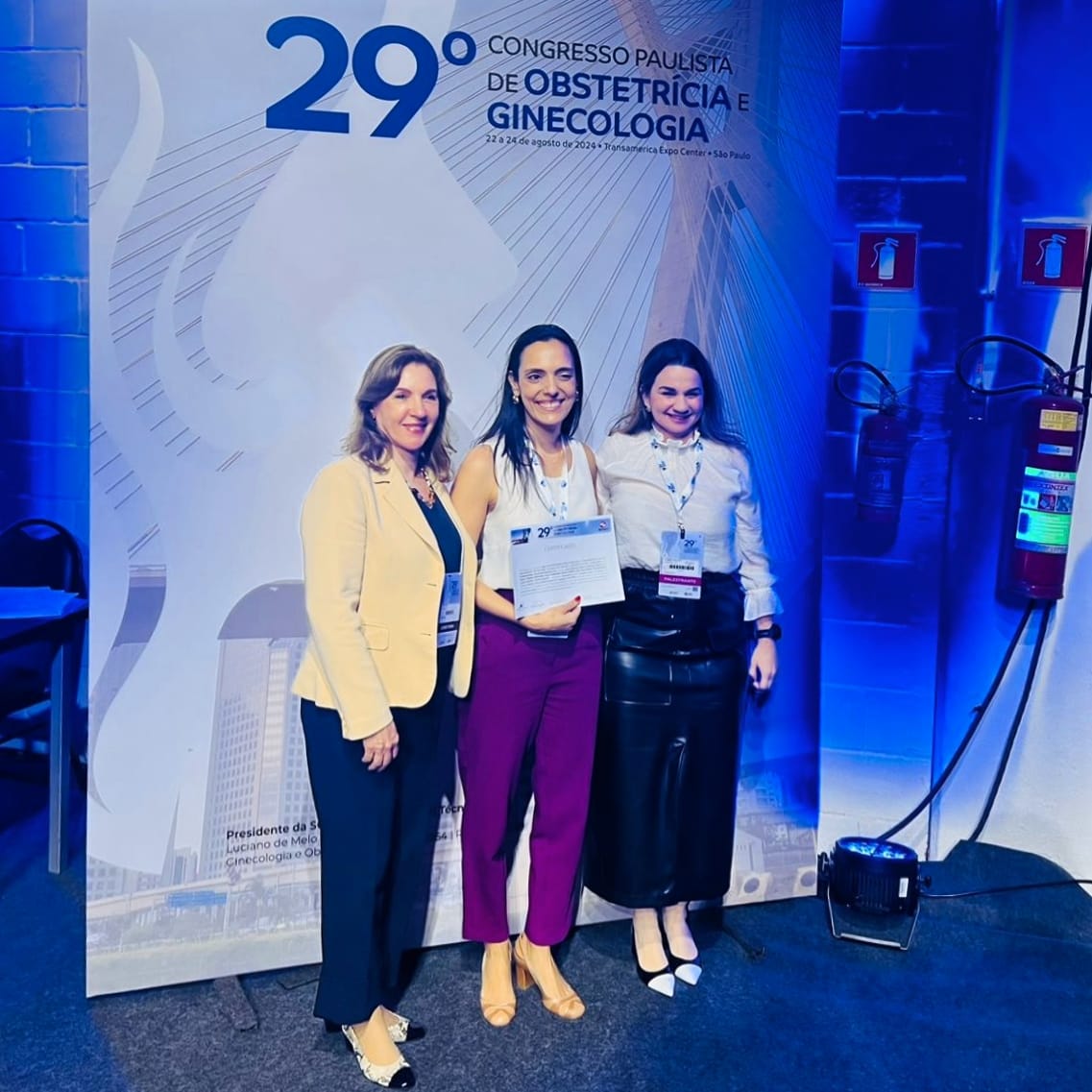 The 29th Congress of the Society of Obstetrics and Gynecology of the State of São Paulo (SOGESP) brought significant recognition to the researchers from the Department of Tocoginecology at the Faculty of Medical Sciences of the State University of Campinas (UNICAMP). Three studies developed by UNICAMP/CEMICAMP researchers were awarded, standing out in the field of Gynecology.
The 29th Congress of the Society of Obstetrics and Gynecology of the State of São Paulo (SOGESP) brought significant recognition to the researchers from the Department of Tocoginecology at the Faculty of Medical Sciences of the State University of Campinas (UNICAMP). Three studies developed by UNICAMP/CEMICAMP researchers were awarded, standing out in the field of Gynecology.
1st place: The study "Complications Related to the Frequency of Vaginal Pessary Hygiene in Women with Genital Prolapse: Randomized Clinical Trial" (G312) achieved the highest position in the field of Gynecology. This study, conducted by Cássia Raquel Teatin Juliato, Geovanna Volta Giorgenon, Luiz Gustavo Oliveira Brito, and Edilson Benedito de Castro, investigated the relationship between the frequency of vaginal pessary hygiene and the occurrence of complications in women with genital prolapse.
2nd place: The study "Gene Expression Associated with Unfavorable Vaginal Bleeding in Women Using the Subdermal Etonogestrel Contraceptive Implant: A Prospective Study" (G240) was also widely recognized, securing 2nd place. Led by Flavia Rocha Torelli and co-authored by Raquel Peres, Ilza Maria Urbano Monteiro, Iscia Terezinha Lopes Cendes, Luis Guillermo Bahamondes, and Cássia Raquel Teatin Juliato, the study offers new insights into the biological mechanisms related to vaginal bleeding in users of the etonogestrel implant.
4th place: Another awarded study was "Comparison of Unilateral vs. Bilateral Tibial Nerve Stimulation in Women with Overactive Bladder Syndrome: Randomized Clinical Trial" (G237), which secured 4th place. Developed by Edilson Benedito de Castro, Cássia Raquel Teatin Juliato, Leticia Martinelli Galhardo, Geovanna Volta Giorgenon, Luiz Gustavo Oliveira Brito, and Marina Rótoli da Silva, the study compared the efficacy of unilateral and bilateral tibial nerve stimulation approaches for the treatment of overactive bladder syndrome.
These awards reinforce UNICAMP's commitment to excellence in scientific research and its contribution to advancing women's health.
El libro “Medicina Ambulatorial”, de la Editorial Artmed y Grupo A, recibe el Premio Jabuti Académico
The book "Medicina Ambulatorial," by Artmed Publishing and Grupo A, receives the Academic Jabuti Award
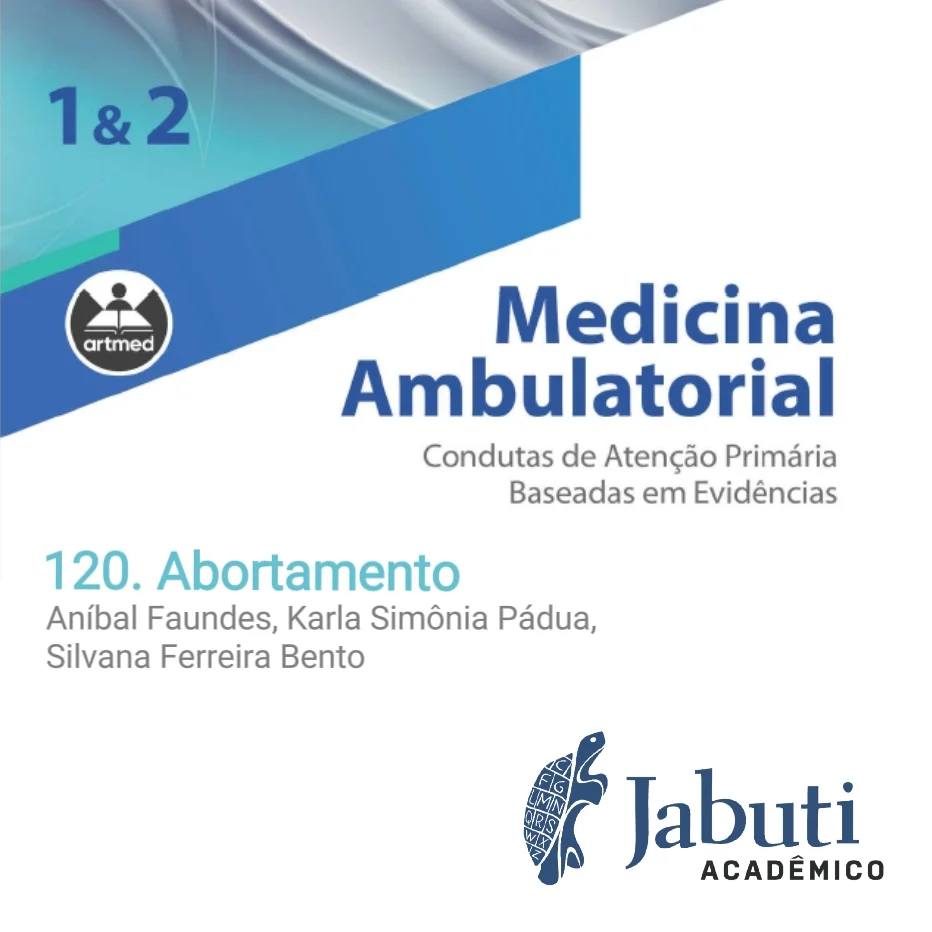 The book "Medicina Ambulatorial," published by Artmed Publishing and Grupo A, was awarded the Academic Jabuti Award in the Classic Academic Book category for 2024. This distinction highlights the relevance and quality of the work.
The book "Medicina Ambulatorial," published by Artmed Publishing and Grupo A, was awarded the Academic Jabuti Award in the Classic Academic Book category for 2024. This distinction highlights the relevance and quality of the work.
Chapter 120, titled "Abortamento," was written by Dr. Anibal Faúndes, senior researcher and former president of CEMICAMP, whose contribution to gynecology and obstetrics is widely recognized. Along with Silvana Bento and Karla Simonia Pádua, researchers from Unicamp and CEMICAMP, the chapter addresses the topic of abortion with depth and clarity, offering a valuable resource for both medical practice and academic research.
The recognition of the Jabuti Award reinforces the importance of the work as a cornerstone in the teaching and practice of ambulatory medicine, highlighting the authors' contribution to the advancement of knowledge in the health field.
Lanzamiento del E-book sobre Infertilidad Femenina en el 28º CBRA
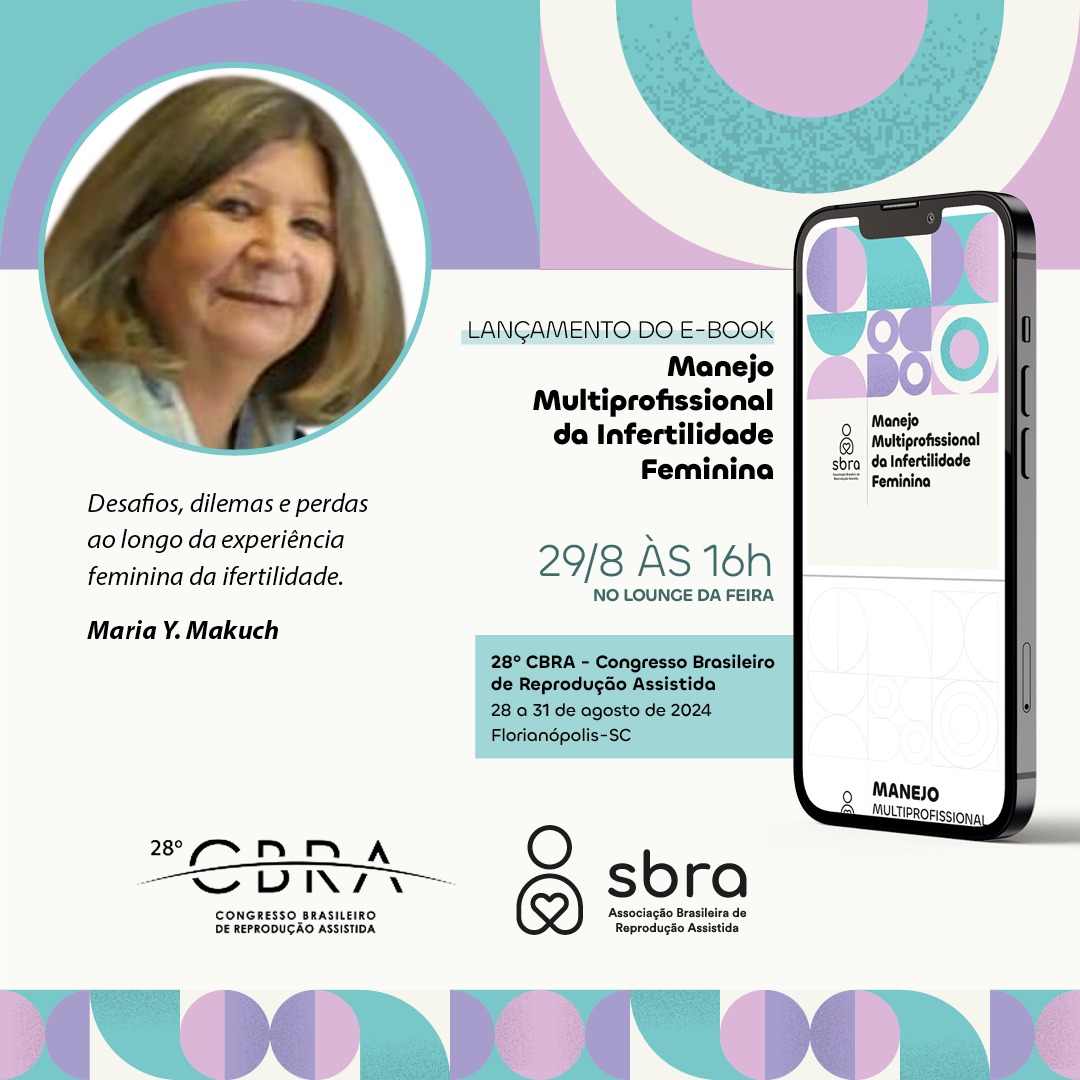 Durante el 28º Congreso Brasileño de Reproducción Asistida (CBRA), que se lleva a cabo del 28 al 31 de agosto de 2024 en Florianópolis-SC, se lanzará el e-book "Desafíos, Dilemas y Pérdidas a lo Largo de la Experiencia Femenina de la Infertilidad," de Maria Y. Makuch, investigadora de CEMICAMP.
Durante el 28º Congreso Brasileño de Reproducción Asistida (CBRA), que se lleva a cabo del 28 al 31 de agosto de 2024 en Florianópolis-SC, se lanzará el e-book "Desafíos, Dilemas y Pérdidas a lo Largo de la Experiencia Femenina de la Infertilidad," de Maria Y. Makuch, investigadora de CEMICAMP.
El lanzamiento está programado para el 29 de agosto a las 16 h, en el Lounge de la Feria, y forma parte de una serie de actividades enfocadas en el manejo multiprofesional de la infertilidad femenina, tema central del Congreso de este año.
Organizado por la Asociación Brasileña de Reproducción Asistida (SBRA), el evento reunirá a especialistas para discutir los desafíos y avances en el campo de la reproducción asistida.
"CEMICAMP Advances in Women's Health with the Implementation of Carevix in Brazil"
Last week, the Centro de Pesquisas em Saúde Reprodutiva de Campinas (CEMICAMP) had the honor of hosting Julien Finci, CTO of Aspivix, for a training session on the innovative Carevix device. This training marks an important advancement in our efforts to enhance women’s health by collecting real-world data on the use of Carevix in Latin America.Na semana passada, o Centro de Pesquisas em Saúde Reprodutiva de Campinas (CEMICAMP) teve a honra de receber Julien Finci, CTO da empresa Aspivix, para uma sessão de treinamento sobre o inovador dispositivo Carevix. Este treinamento marca um avanço importante em nossos esforços para aprimorar a saúde da mulher, coletando dados do mundo real sobre o uso do Carevix na América Latina.
We are excited to announce that Cemicamp has become an Ambassador site for Carevix, thanks to the support of Prof. Dr. Luis Bahamondes and Bayer Pharmaceuticals. This partnership will enable thousands of women in low- and middle-income countries to access safe and effective contraceptive methods.
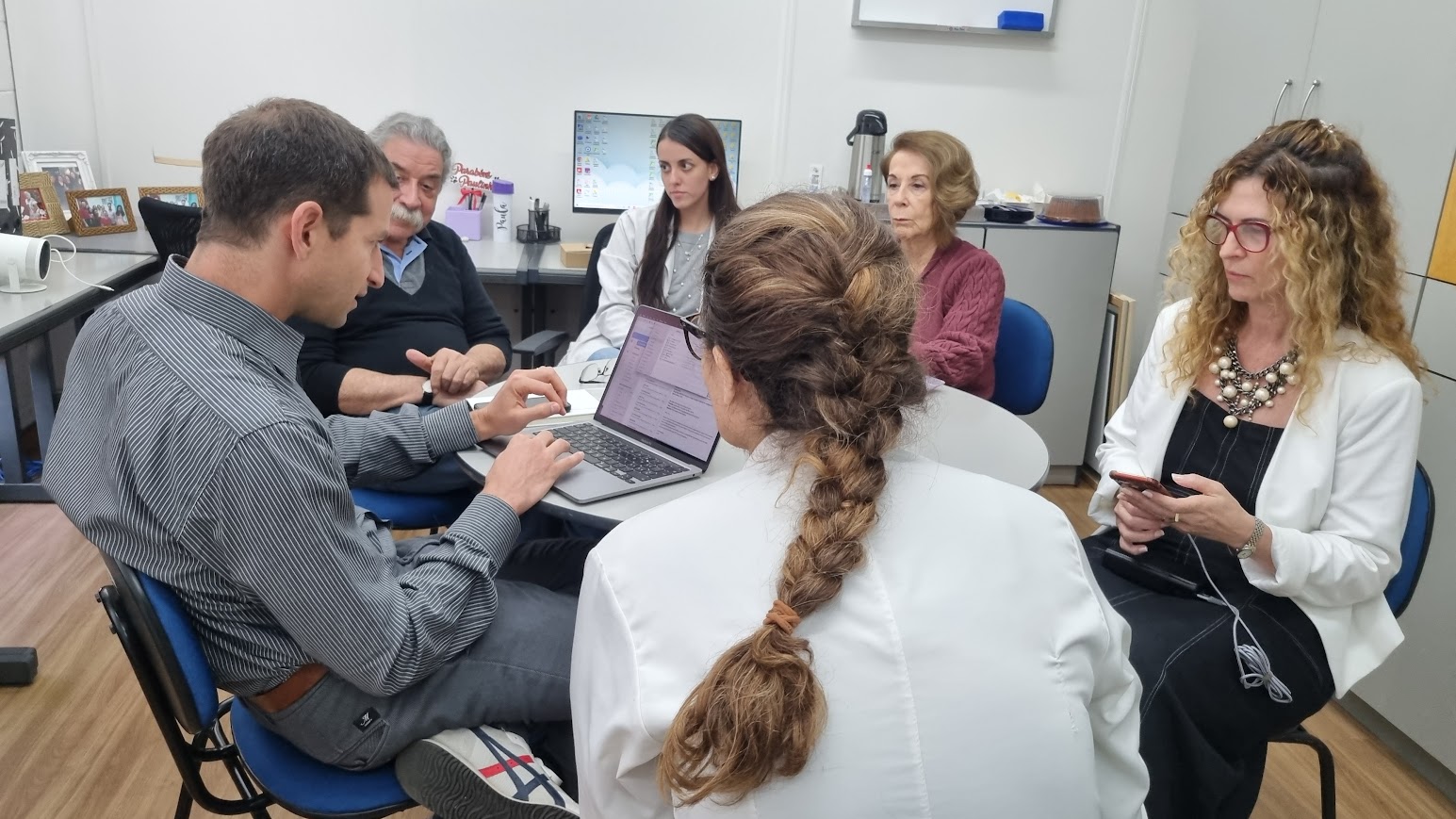 During the training session, we had the pleasure of working with:
During the training session, we had the pleasure of working with:
Prof. Dr. Luis Bahamondes, President of CEMICAMP and Principal Investigator
Dr. Ana Claudia Henrique Marcelino, Medical Researcher and Sub-Investigator
Ximena Espejo-Arce, Research Nurse
Paula da Cunha Pereira, Research Nurse and Clinical Research Coordinator
Vilma Zotarelli, Study Coordinator
The dedication and expertise of these professionals in the field of family planning and gynecology are truly inspiring. Together, we are paving the way for safer and more effective solutions in women’s health.
Our goal with this collaboration is to enhance data collection in real-world settings, ensuring that Carevix continues to meet the needs of both healthcare professionals and patients. The enthusiasm and commitment demonstrated by the Cemicamp team were remarkable, and we are confident that this partnership will provide invaluable insights.
We will continue to expand our network of Ambassador sites and drive innovation in gynecology, always with the focus on pushing the boundaries of women's health.
Let’s continue advancing and promoting women’s health!
FIGO Statement on the Recent Ban on Inducing Fetal Asystole for Legal Abortions in Brazil
In many countries around the world, women and girls who need to undergo abortions in advanced gestational stages face significant barriers to accessing safe services. These women and girls are among the most vulnerable, often subjected to increased stigmatization and persecution, and experience more severe complications and higher mortality rates when forced to resort to unsafe abortion practices.
Restrictive laws that deviate from the World Health Organization (WHO) recommendations against imposing deadlines, combined with a shortage of trained professionals, further exacerbate injustices against these individuals. In regions where legislation allows for the provision of safe abortion services in later stages of pregnancy, it is the ethical and professional duty of healthcare providers to advocate for access and quality, and to challenge any barriers that worsen existing structural factors.
In Brazil, induced abortion is legal under three circumstances: when the pregnancy results from rape, when there is a risk to the life of the pregnant person, and when there is a diagnosis of fetal anencephaly. In these three circumstances, there is no gestational age limit to access the right to a safe abortion according to Brazilian law. However, the Federal Council of Medicine of Brazil recently issued a resolution prohibiting the induction of fetal asystole for legally induced abortions, undermining these rights.
The Ban is Unethical and Contradicts Medical Evidence
FIGO expresses its deep concern over the recent resolution issued by the Federal Council of Medicine of Brazil that prohibits the induction of fetal asystole for legally induced abortions. This ban in Brazil is unethical and contradicts medical evidence.
For abortion procedures performed after 20 weeks of gestation, scientific evidence supports considering the induction of fetal asystole to prevent signs of life during a medical (induced) abortion or fetal expulsion after cervical preparation but before a planned dilation and evacuation (DE) procedure. The likelihood of transient neonatal survival after expulsion increases with gestational age and the interval between cervical preparation and the abortion. For medical abortion beyond the limit of viability, the induction of fetal asystole should always be an option.
The ban prevents access to quality abortion services for women with advanced (beyond viability) pregnancies who otherwise have the right to legal abortion in Brazil. The induction of fetal asystole in advanced induced abortions is an essential component of standard quality care and aligns with the intended outcome of the abortion, which is never a live birth.
The ban prevents obstetricians and gynecologists from adhering to the ethical principle of beneficence. It is well-established that safe induced abortion is safer than childbirth, even at advanced gestational ages. Terminating a pregnancy without inducing fetal asystole constitutes the induction of a premature live birth (which by definition is not an abortion). Without the induction of fetal asystole, abortions beyond the limit of viability become impossible to perform, forcing women to either continue the pregnancy and face the risks of full-term delivery and forced motherhood, or resort to very unsafe abortions. Thus, the ban violates women’s right to access and benefit from modern scientific technologies for a safe abortion.
The Ban Violates Ethical Principles
The ban contravenes the ethical principle of non-maleficence by potentially exposing the woman and the newborn to the harms of prematurity if advanced pregnancies are terminated without inducing fetal asystole. Terminating an advanced pregnancy without inducing fetal asystole could result in transient signs of life or even survival, with all the complications associated with prematurity (including respiratory distress, patent ductus arteriosus, severe intraventricular hemorrhage, necrotizing enterocolitis, late-onset sepsis, bronchopulmonary dysplasia requiring supplemental oxygen, and retinopathy). The induction of fetal asystole is therefore necessary to prevent avoidable risks to newborns and ensure non-maleficence, as well as to avoid legal implications for doctors who face caregiving obligations with neonates showing signs of life.
The ban indeed violates the prohibition of torture or other cruel, inhuman, or degrading treatment as established by the United Nations Human Rights Council. Banning the induction of fetal asystole could compel obstetricians and gynecologists to refuse to provide legally requested abortions due to their commitment to avoid causing harm to the newborn. Such refusal would constitute a violation of the pregnant person’s right to be free from torture or other cruel, inhuman, or degrading treatment or punishment.
The ban promotes the false assumption that studies on premature infants are applicable to aborted fetuses, using the rhetoric of viability. Viability is a medical concept relevant only to neonatal care and intensive care in the context of spontaneous or medically indicated preterm birth. It is not relevant to induced abortions. Even in applicable contexts, preterm birth is a last-resort measure in obstetrics, as any harm to the newborn, no matter how minimal, should be avoided. The studies on premature children cited in the resolution of the Federal Council of Medicine of Brazil pertain to inevitable preterm births and should not be generalized to aborted fetuses. This intentional misinterpretation also trivializes the risks associated with prematurity.
Impact on Public Health
The ban will negatively impact public health indicators by potentially falsely increasing neonatal and infant mortality and morbidity rates.
Ensuring Safe and Respectful Care
FIGO reiterates that the induction of fetal asystole should be considered and legally permitted as a therapeutic intervention to ensure a safe, medically induced abortion at advanced gestational stages when extrauterine viability is possible. This practice allows for care that respects the autonomy of the pregnant person and protects them from any harm. Banning fetal asystole—resulting in the risk of live births from legal abortion requests—undermines access to safe abortion care. In Brazil, it deprives healthcare professionals of the ability to advocate for the rights of women and girls as recognized by Brazilian legislation. This ban exacerbates social disparities and injustices: it sets a dangerous precedent for the entire region, threatening the significant advances made in this area in recent years.
References:
- World Health Organization (WHO). Clinical practice handbook for quality abortion care. Geneva: WHO, 2023. Available at: www.who.int/publications/i/item/9789240075207nbsp;
- World Health Organization (WHO), International Classification of Diseases 11th Revision (2022). The global standard for diagnostic health information. Available at: https://icd.who.int/browse11/lm/en#/http://id.who.int/icd/entity/151711…;
- Bartlett LA, et al. Risk factors for legal induced abortion-related mortality in the United States. Obstet Gynecol. 2004 Apr;103(4):729-37.
- CESCR. General Comment Nº 25: Science and economic, social and cultural rights. Article 15(1)(b), (2), (3) and (4) of the International Covenant on Economic, Social and Cultural Rights. United Nations, 2020 (UN Doc. E/C.12/GC/25).
- Stoll BJ, et al; Neonatal outcomes of extremely preterm infants from the NICHD Neonatal Research Network. Pediatrics. 2010 Sep;126(3):443-56.
- United Nations. General Council. Human Rights Council. A/HRC/22/53. Report of the Special Rapporteur on torture and other cruel, inhuman, or degrading treatment or punishment, Juan E. Méndez. Paragraphs 49 and 50.
- Nuffield Council of Bioethics. Critical care decisions in fetal and neonatal medicine: ethical issues. London: Nuffield Council of Bioethics, 2006.
- Romanis EC. Is 'viability' viable? Abortion, conceptual confusion and the law in England and Wales and the United States. J Law Biosci. 2020 Oct 9;7(1): lsaa059.
- Brumbaugh JE,et al. Outcomes of Extremely Preterm Infants With Birth Weight Less Than 400 g. JAMA Pediatr. 2019 May 1;173(5):434-445.
- Tyson JE, et al.; National Institute of Child Health and Human Development Neonatal Research Network. Intensive care for extreme prematurity--moving beyond gestational age. N Engl J Med. 2008 Apr 17;358(16):1672-81.
† Although the ban on the induction of fetal asystole by the Federal Council of Medicine is not a law in Brazil, it is valid nationwide for all Brazilian doctors. Since in Brazil legally induced abortions must only be performed by doctors according to the text of the law, the resolution published by the Federal Council of Medicine ultimately restricts medical practice concerning induced abortions.
‡ The concept of viability is variable and depends on the context and available technology.
Check the original article here.
Complete Series of the International Group on Access to Hormonal IUDs
For decades, the hormonal IUD has been an available option in high-income countries, providing an effective and convenient solution for family planning. However, there is still a horizon of possibilities to be explored for this contraceptive method. A recent video, available for viewing, features experts discussing the future of the hormonal IUD, addressing its potential and the challenges in making this option equitably accessible worldwide.
In the latest edition of the Hormonal IUD Access Group video series, which reflects on the long journey toward the global introduction of the hormonal IUD, renowned experts including Gathari Ndirangu Gichuhi, Tabitha Sripipatana, Laneta Dorflinger, Jim Sailer, and Dr. Luis Bahamondes discuss the next steps for expanding access to this technology. Dr. Luis Bahamondes, who is the president of CEMICAMP, has been a central figure in the discussions covered in the three videos of the series, contributing his extensive experience and knowledge in the field.
The videos highlight the importance of achieving equitable access to the hormonal IUD, a product that not only expands contraceptive options but also addresses heavy menstrual bleeding, combats iron deficiency, and improves the quality of life for millions of people around the world. With experts like Dr. Luis Bahamondes involved in these discussions, there is a clear focus on finding solutions that can be implemented across various socioeconomic realities, promoting a positive impact on global public health.
Dr. Luis Bahamondes's active participation in the discussions underscores the importance of continuous and informed dialogue on how to improve the distribution and acceptance of the hormonal IUD. His involvement in the three videos of the series reinforces the commitment of experts to finding ways for this technology to benefit as many people as possible, regardless of their location or economic condition.
Check out an excerpt from the discussion published on our Instagram:
For those interested in closely following these discussions and staying informed about advancements in the field, it is possible to subscribe to the HIUD Access Group newsletter through the website. Through this channel, subscribers can receive updates and information on new developments, initiatives, and events related to the hormonal IUD and its global impact.
In summary, the hormonal IUD represents a key piece in the puzzle of modern family planning, with the potential to transform lives. With dedicated experts like Dr. Luis Bahamondes leading the way, there is hope that broader and more equitable access will be achieved, allowing millions of people to benefit from this innovation in reproductive health.
Check out the complete series below:





